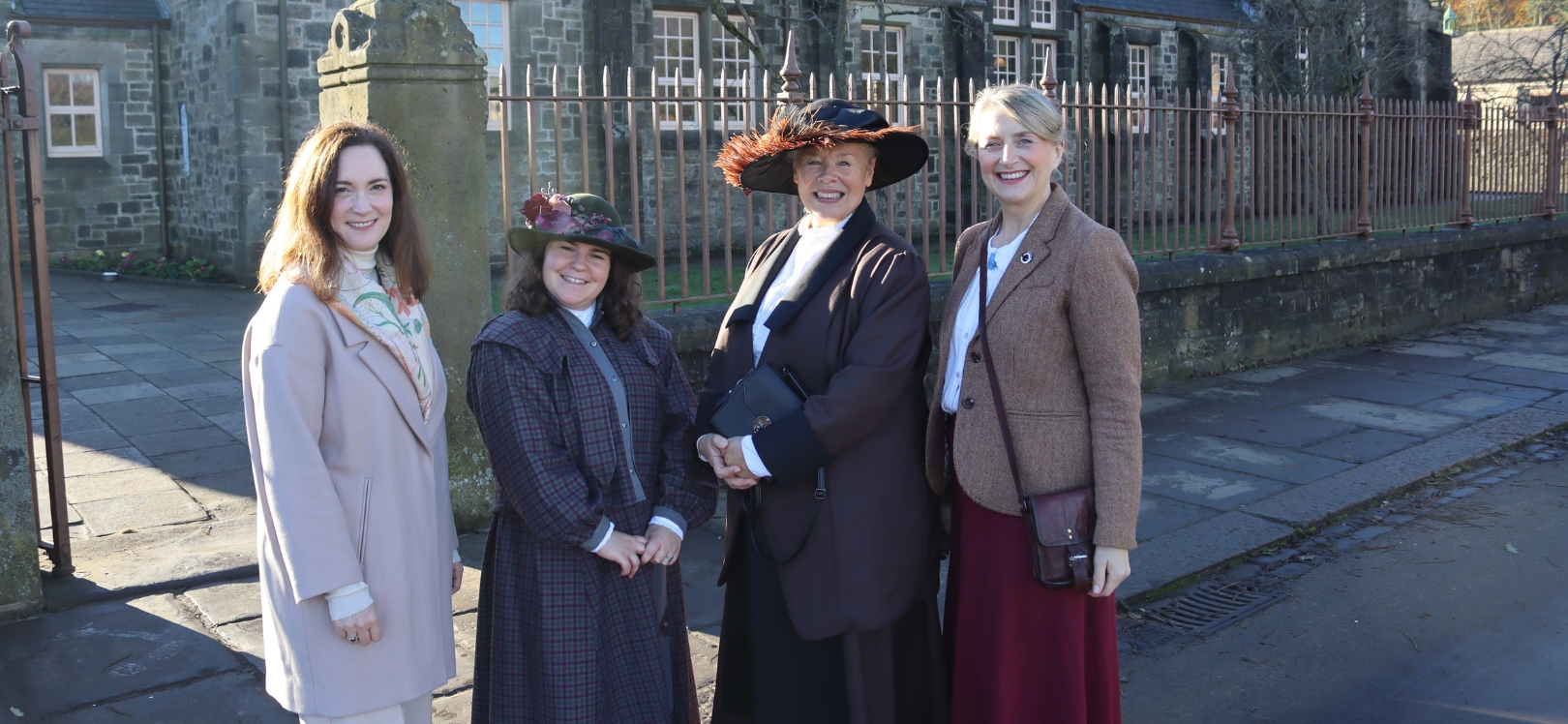Industry News
Into The Light Place Partnership to Open New Mentorship Scheme
Into the Light’s skills hub, hosted by Beamish Museum, to increase opportunities in the creative and cultural sector is looking for mentors who would like to get involved.
The County Durham Creative and Cultural Skills Hub is part of the county-wide Into the Light programme, which aims to cultivate talent, boost skills and break down barriers to working in the creative industries.
Beamish Museum is launching a pilot mentoring scheme which aims to support mentees looking to progress and upskill in all disciplines within the creative and cultural sector in County Durham.
The mentors could include those working in live performances, museums, arts and design, and anything in between.
The programme is particularly interested in supporting mentees from communities who have historically been underrepresented in the workforce and/or who have faced multiple barriers to entry or progression.
This will be a six-month pilot scheme and there will be 12 hours of mentoring per mentee/mentor pairing. Mentees and mentors will be paired after successful on-boarding and every participant will receive ongoing support throughout their mentoring journey.
As part of this, the Hub is seeking 12 volunteer mentors (including four paid positions for freelancers) to establish mentor-mentee relationships centred on the mentees' goals.
Niamh Barclay, Project Lead for the Creative and Cultural Skills Hub, said: “We're excited to launch the first strand of the County Durham Creative and Cultural Skills Hub through this mentorship programme. This programme is an opportunity to support mentees who have faced barriers to entry and progression in the Creative and Cultural sector, ensuring they receive the guidance and support needed to thrive.
“By becoming a mentor, you’ll not only help shape the future of our sector, but also build your own skills and connections. We are happy to announce that, thanks to the Into the Light funding, we are able to offer four paid mentor positions for professional freelancers, ensuring that this is an equitable and accessible mentoring programme.”
The programme is looking for mentors who can help mentees navigate their professional growth, whether by offering expertise in a specific field or guiding them through general career development. Mentoring is about empowering mentees to build their confidence, expand their skills, and shape their futures.
Julia Handelman-Smith, Director of Into the Light, said: “I’m really excited about the mentorship programme. Mentorship is a transformative experience for both mentors and mentees, and we hope to learn as much from our pilot mentees as we give back. This is the spirit of Into the Light – a unique collaboration across County Durham to break down barriers to creative and cultural skills through innovation, research and dialogue.”
The Durham Creative and Cultural Skills Hub aims to boost the skills, capacity and resilience of the county’s creative and cultural sector. It is exploring five strands – apprenticeships, paid placements, mentoring, Level 3 qualifications and volunteering.
Working closely with Culture Durham, the Skills Hub will create pathways for communities with historically low levels of representation in the sector, building a more inclusive, diverse and skilled workforce for the future.
The Hub is part of Into the Light, which is a three-year programme across County Durham, consisting of eight projects across three interconnected themes. It will support over 100 creative commissions, create nationally significant performances and theatre-making in the heart of communities, inspire children and young people, invite visitors to explore the unique mix of culture, science, and heritage, and deepen our understanding of our place in the world.
Into the Light is delivered by Durham County Council in partnership with Beamish Museum, The Bowes Museum, Durham University, Ensemble ‘84, The Forge, No More Nowt, Northern Heartlands, Redhills CIO and TIN Arts. Culture Durham is a key stakeholder, representing the broader cultural sector.
It is funded by Durham County Council, the National Lottery through Arts Council England, the UK government through the UK Shared Prosperity Fund (UKSPF) and Durham University.
Find out more about becoming a mentor, on the Beamish Museum website.

